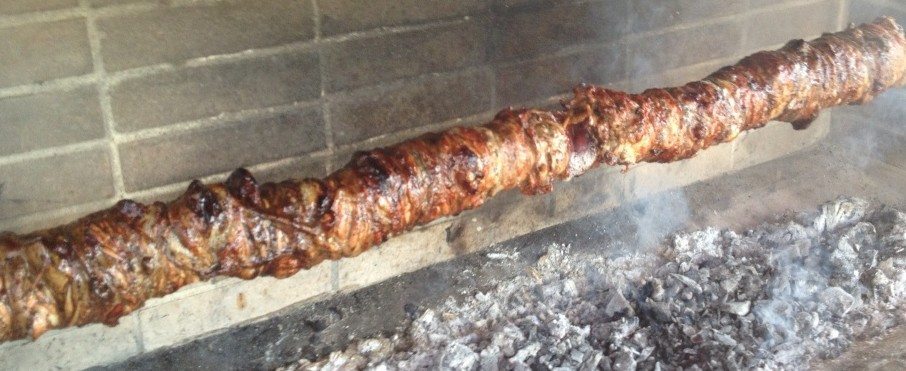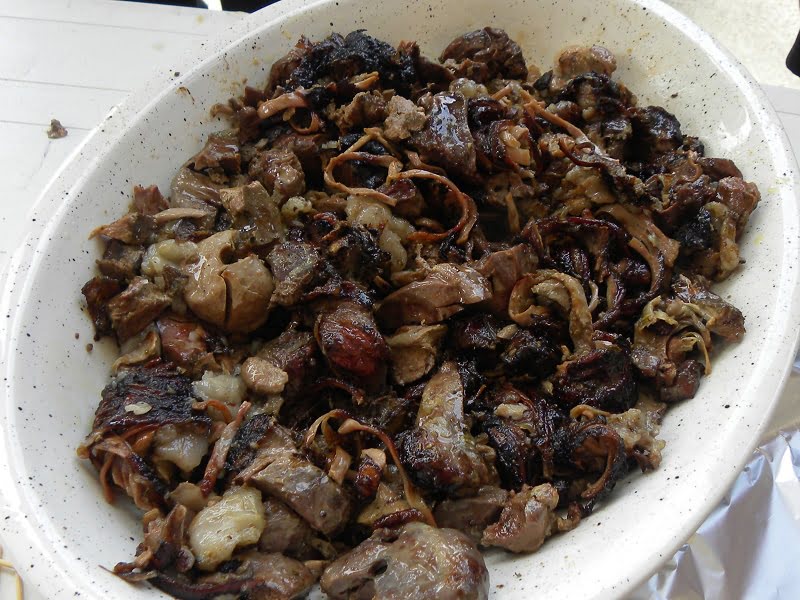Kokoretsi
κοκορέτσι, kukurec
Kokoretsi or kokoreç is a dish of the Balkans and Anatolia , consisting of lamb or goat intestines wrapped around seasoned offal, including sweetbreads, hearts, lungs, or kidneys, and typically grilled; a variant consists of chopped innards cooked on a griddle. The intestines of suckling lambs are preferred. A dish identical to modern kokoretsi is first attested in the cuisine of the Byzantines. They called it πλεκτήν (plektín), κοιλιόχορδα (koilióchorda), or χορδόκοιλα (chordókoila); the latter two are preserved with the meaning of wrapped intestines in the Greek idioms of Corfu as τσοιλίχουρδα (tsoilíchourda), of Plovdiv as χορδόκοιλα (chordókoila), of Chios as σοιλίγουρδα (soilígourda), of Pontians as χορδόγκοιλα (chordógkoila), and in part, of Zagori and Argyrades as χορδή (chordí), of Thessaly as χουρδή (chourdí), of northern Peloponnese as κορδιά (kordiá) or κόρδα (kórda), and of Vogatsiko as κουρδί (kourdí). Other names found in medieval texts are γαρδούμιον (gardoúmion) and γαρδούμενον (gardoúmenon), from which γαρδούμπα (gardoúmpa) and γαρδουμπάκια (gardoumpákia) derive, as alternative names for a smaller version of kokoretsi in Greece. Τhe Medieval Greek γαρδούμιον (gardoúmion) in turn derives from Latin caldumen; from caldus or calidus 'warm, hot'. According to Greek linguist and philologist Georgios Babiniotis, the Greek word κοκορέτσι (kokorétsi) comes from Albanian kukurec. According to Turkish Armenian linguist Sevan Nişanyan, Albanian kukurec is a loanword derived from Serbo-Croatian and Bulgarian kukuruza, originally meaning corncob in these languages. Nişanyan also asserts that the Greek word is not derived from the Albanian kukurec, but both words are cognates that were loaned from South Slavic languages independently. The Aromanian name is cucureci.
Source: Wikipedia
Recipes



